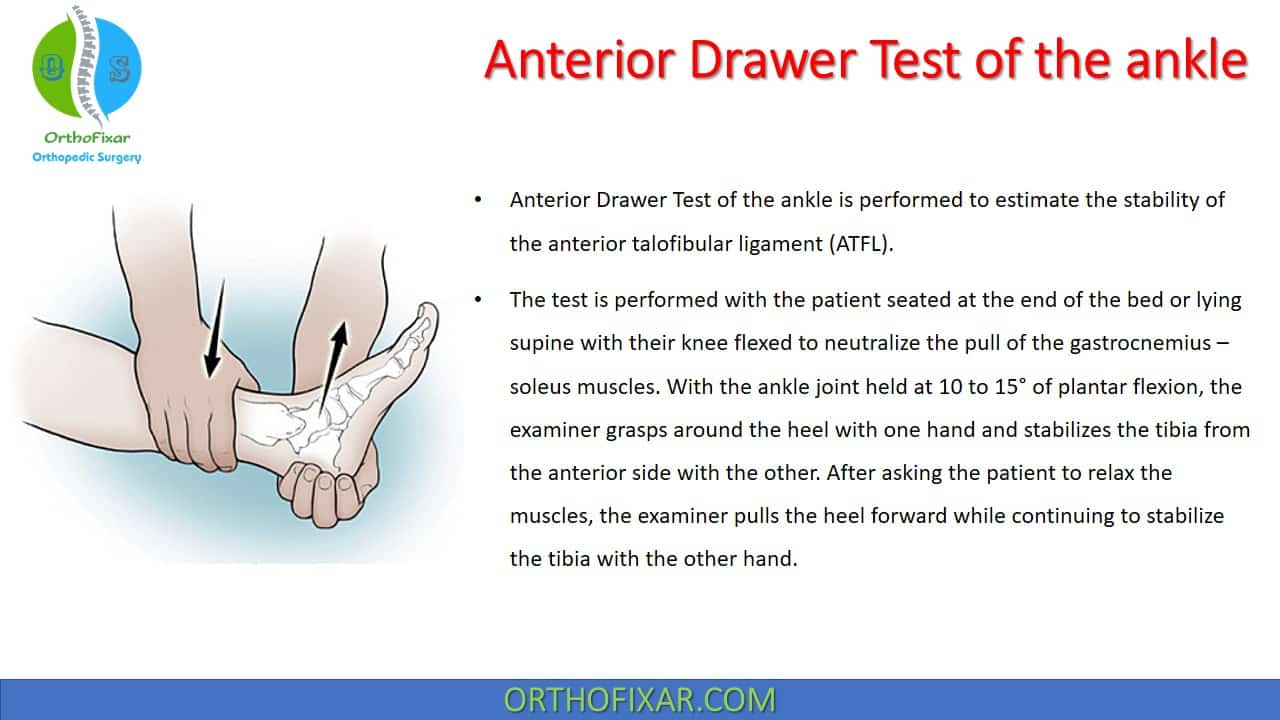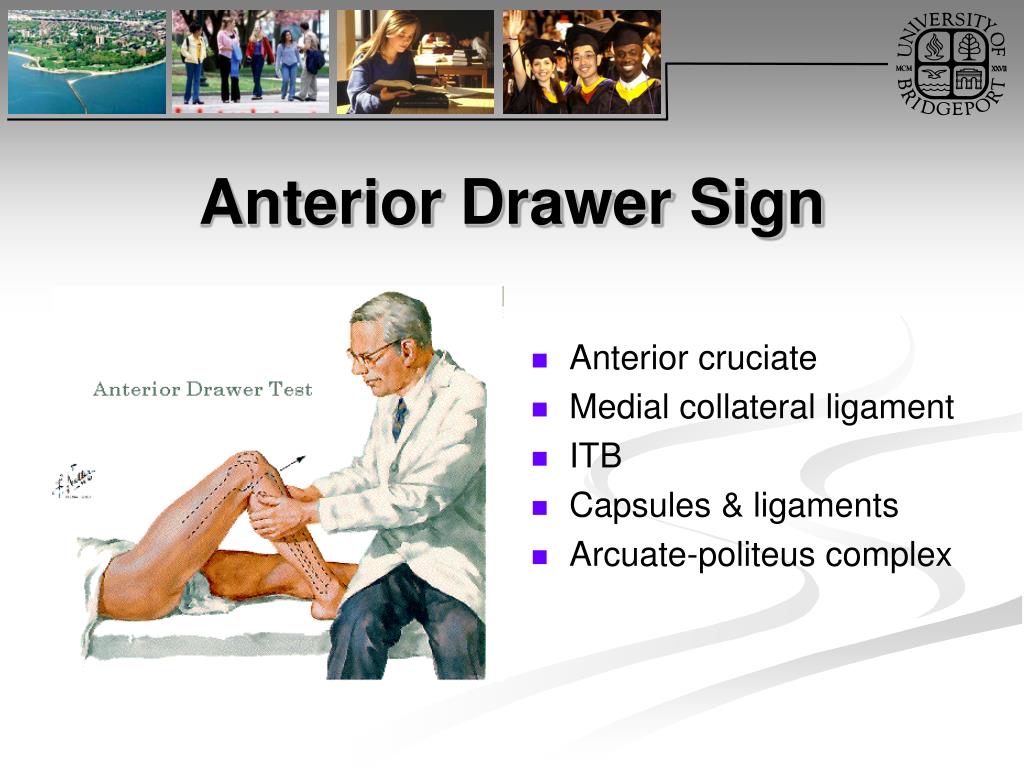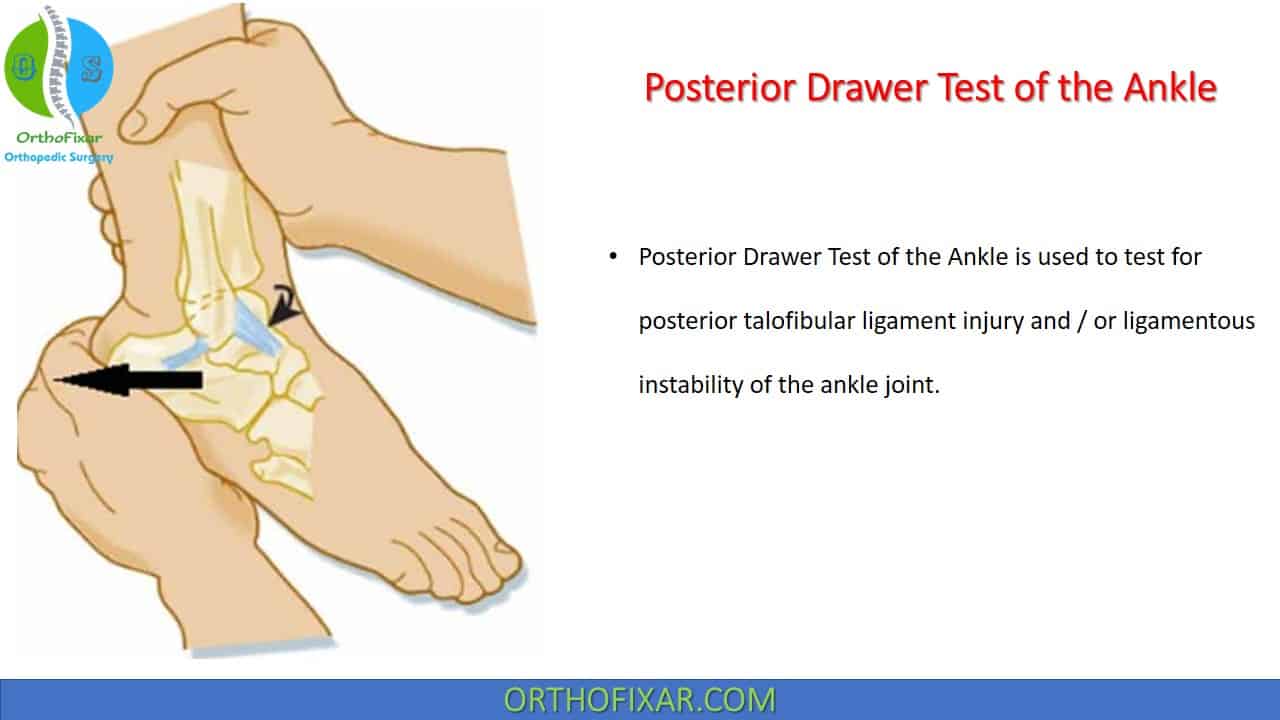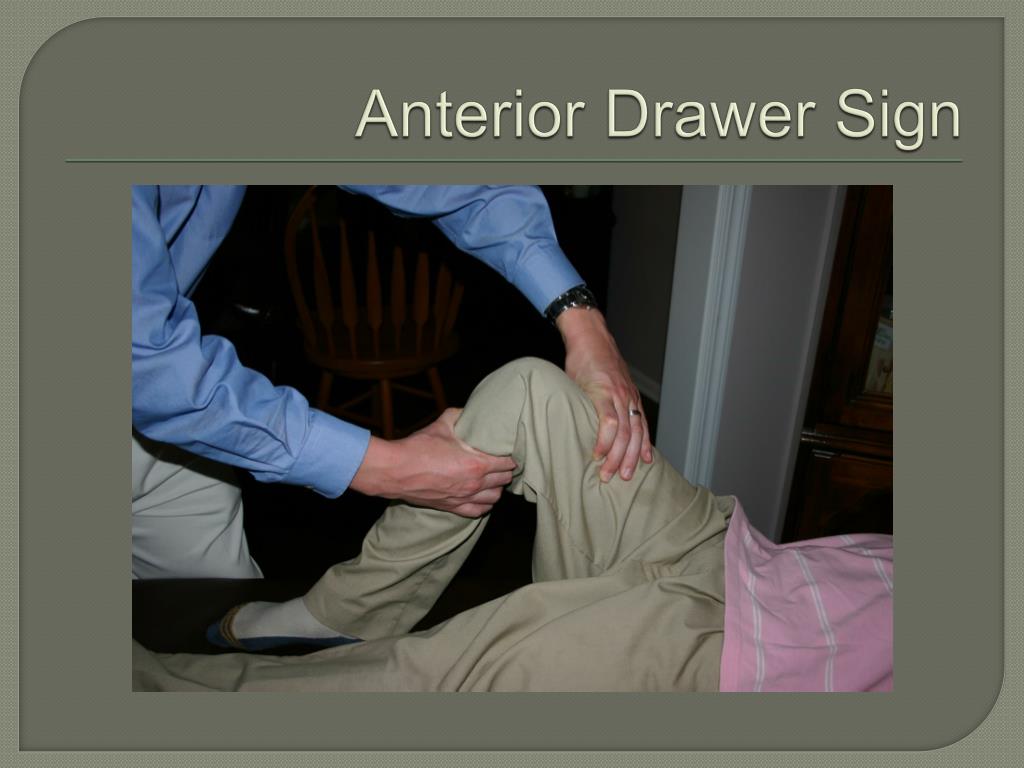Drawer Sign
Drawer Sign - Web the examiner grasps the proximal lower leg, just below the tibial plateau or tibiofemoral joint line and attempts to translate the lower leg anteriorly. It is designed to help you or your healthcare provider determine if you have sprained or torn your acl. The anterior drawer test is a physical examination doctors use to test the stability of the knee’s anterior cruciate ligament (acl). Web for more knee examination video tutorials, visit the amboss library: 975k views 8 years ago cruciate ligaments of the knee. The patient is supine and the knee to be tested is flexed to approximately 90 degrees. Loss of range of motion in your knee (how far you can move it). (a sprain is a tear to a ligament. Learn about the causes of acl tears, treatment options, and what to expect with this test. Medically reviewed by oluseun olufade, md. Web the drawer test is used in the initial clinical assessment of suspected rupture of the cruciate ligaments in the knee. The patient should be supine with the hips flexed to 45 degrees, the knees flexed to 90 degrees and the feet flat on table. Web for more knee examination video tutorials, visit the amboss library: Medically reviewed by amy. Web the drawer test is used in the initial clinical assessment of suspected rupture of the cruciate ligaments in the knee. It is designed to help you or your healthcare provider determine if you have sprained or torn your acl. Swelling (it might start right away, but can also appear four to six hours later). Web an anterior drawer test. The test is considered positive if there is a lack of end feel or excessive anterior translation relative to the contralateral side. Medically reviewed by oluseun olufade, md. To test the integrity of the posterior cruciate ligament (pcl). The examiner then sits on the toes of the tested extremity to help stabilize it. Doctors may use this test, along with. The examiner then sits on the toes of the tested extremity to help stabilize it. To test the integrity of the posterior cruciate ligament (pcl). Web for more knee examination video tutorials, visit the amboss library: Healthcare provider often perform a posterior drawer test to assess the function of the posterior cruciate ligament (pcl)—one of the four ligaments of the. The anterior drawer test for anterior cruciate ligament (acl) stability is a special test for your knee. 975k views 8 years ago cruciate ligaments of the knee. The examiner then sits on the toes of the tested extremity to help stabilize it. The patient should be supine with the hips flexed to 45 degrees, the knees flexed to 90 degrees. Medically reviewed by oluseun olufade, md. Web the most common symptoms of an acl tear include: The anterior drawer test for anterior cruciate ligament (acl) stability is a special test for your knee. Healthcare provider often perform a posterior drawer test to assess the function of the posterior cruciate ligament (pcl)—one of the four ligaments of the knee. Swelling (it. Medically reviewed by amy kwan, pt. The test is considered positive if there is a lack of end feel or excessive anterior translation relative to the contralateral side. Healthcare provider often perform a posterior drawer test to assess the function of the posterior cruciate ligament (pcl)—one of the four ligaments of the knee. It is designed to help you or. The anterior drawer test for anterior cruciate ligament (acl) stability is a special test for your knee. Loss of range of motion in your knee (how far you can move it). Web the drawer test is used in the initial clinical assessment of suspected rupture of the cruciate ligaments in the knee. The patient should be supine with the hips. Web updated on may 22, 2023. The anterior drawer test is a physical examination doctors use to test the stability of the knee’s anterior cruciate ligament (acl). Medically reviewed by amy kwan, pt. Swelling (it might start right away, but can also appear four to six hours later). Web the drawer test is used in the initial clinical assessment of. The examiner then sits on the toes of the tested extremity to help stabilize it. To test the integrity of the posterior cruciate ligament (pcl). Web updated on july 09, 2022. It is designed to help you or your healthcare provider determine if you have sprained or torn your acl. Web the examiner grasps the proximal lower leg, just below. Web the most common symptoms of an acl tear include: The anterior drawer test is a physical examination doctors use to test the stability of the knee’s anterior cruciate ligament (acl). Doctors may use this test, along with. 975k views 8 years ago cruciate ligaments of the knee. The anterior drawer test for anterior cruciate ligament (acl) stability is a special test for your knee. Web an anterior drawer test is used to check your knee for an acl tear. Medically reviewed by oluseun olufade, md. To test the integrity of the posterior cruciate ligament (pcl). Web updated on may 22, 2023. Web updated on july 09, 2022. A feeling like your knee is “giving out” (collapsing or buckling). Medically reviewed by amy kwan, pt. The test is considered positive if there is a lack of end feel or excessive anterior translation relative to the contralateral side. Web the examiner grasps the proximal lower leg, just below the tibial plateau or tibiofemoral joint line and attempts to translate the lower leg anteriorly. The examiner then sits on the toes of the tested extremity to help stabilize it. It is designed to help you or your healthcare provider determine if you have sprained or torn your acl.
PPT Joints of the Lower Limb PowerPoint Presentation, free download

Anterior Drawer Test Of The Ankle

Anterior Drawer Ankle (ATFL) YouTube

MRCS Knee Examination Positive Anterior Drawer YouTube

Knee Tests The Knee Resource

Drawer Test Bruin Blog

PPT Knee Orthopaedic Tests PowerPoint Presentation, free download

Special Test Category Ankle & Foot Examination OrthoFixar

PPT The Osteopathic Evaluation and Treatment of Acute Basketball

Shoulder Drawer Sign Test Video Anterior Posterior Safer Pain
Learn About The Causes Of Acl Tears, Treatment Options, And What To Expect With This Test.
The Patient Should Be Supine With The Hips Flexed To 45 Degrees, The Knees Flexed To 90 Degrees And The Feet Flat On Table.
Healthcare Provider Often Perform A Posterior Drawer Test To Assess The Function Of The Posterior Cruciate Ligament (Pcl)—One Of The Four Ligaments Of The Knee.
Web For More Knee Examination Video Tutorials, Visit The Amboss Library:
Related Post: